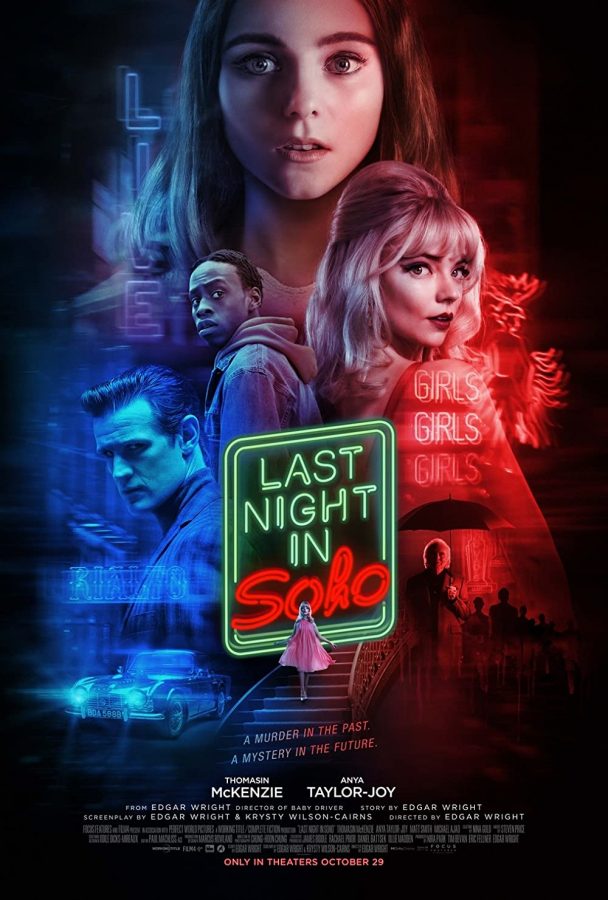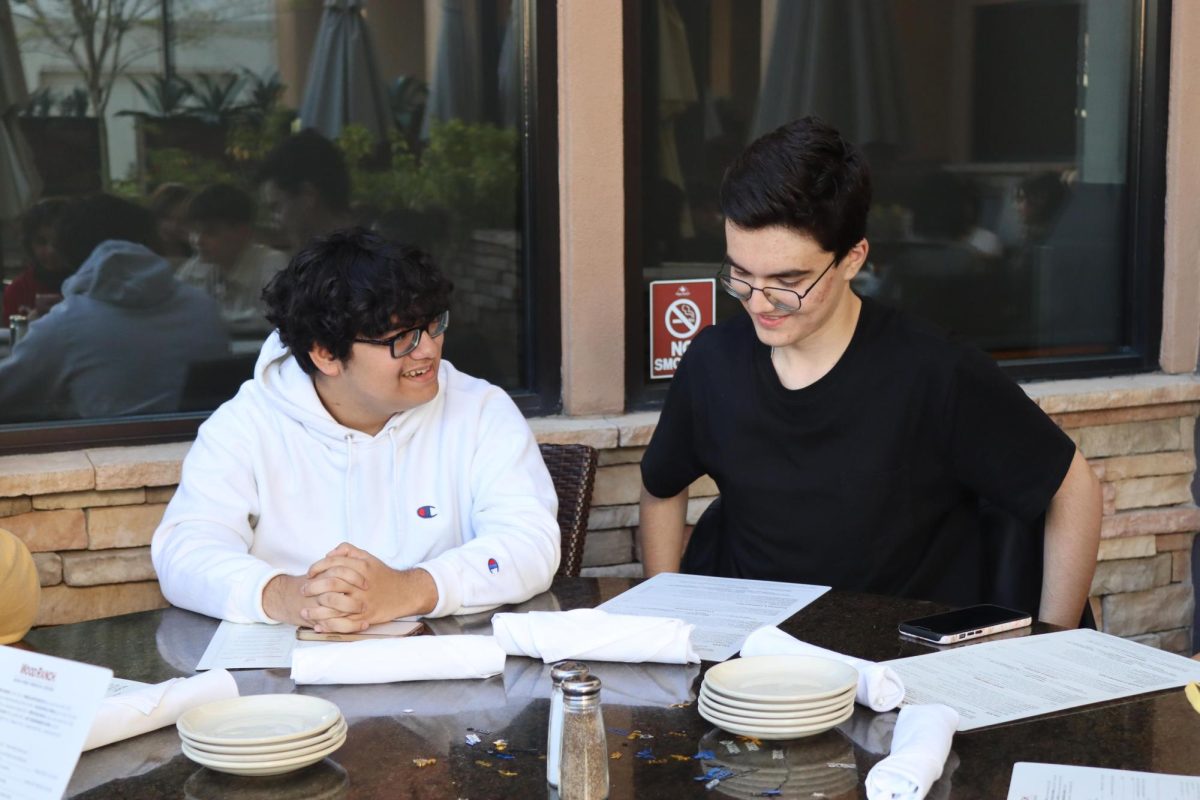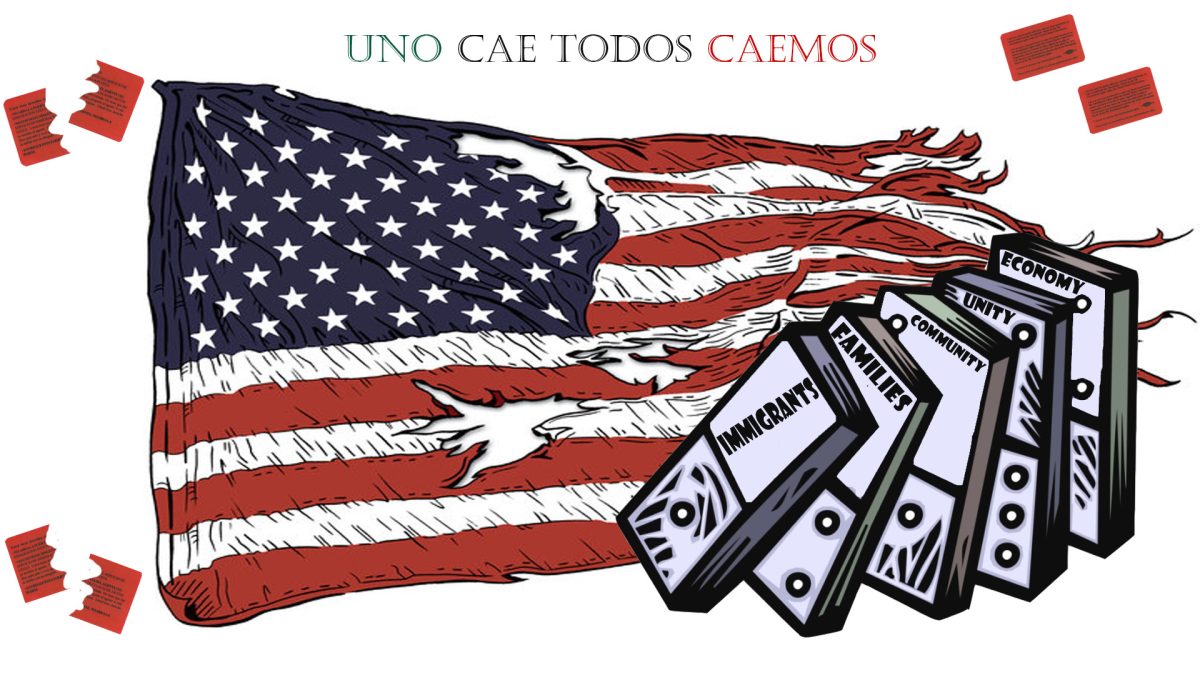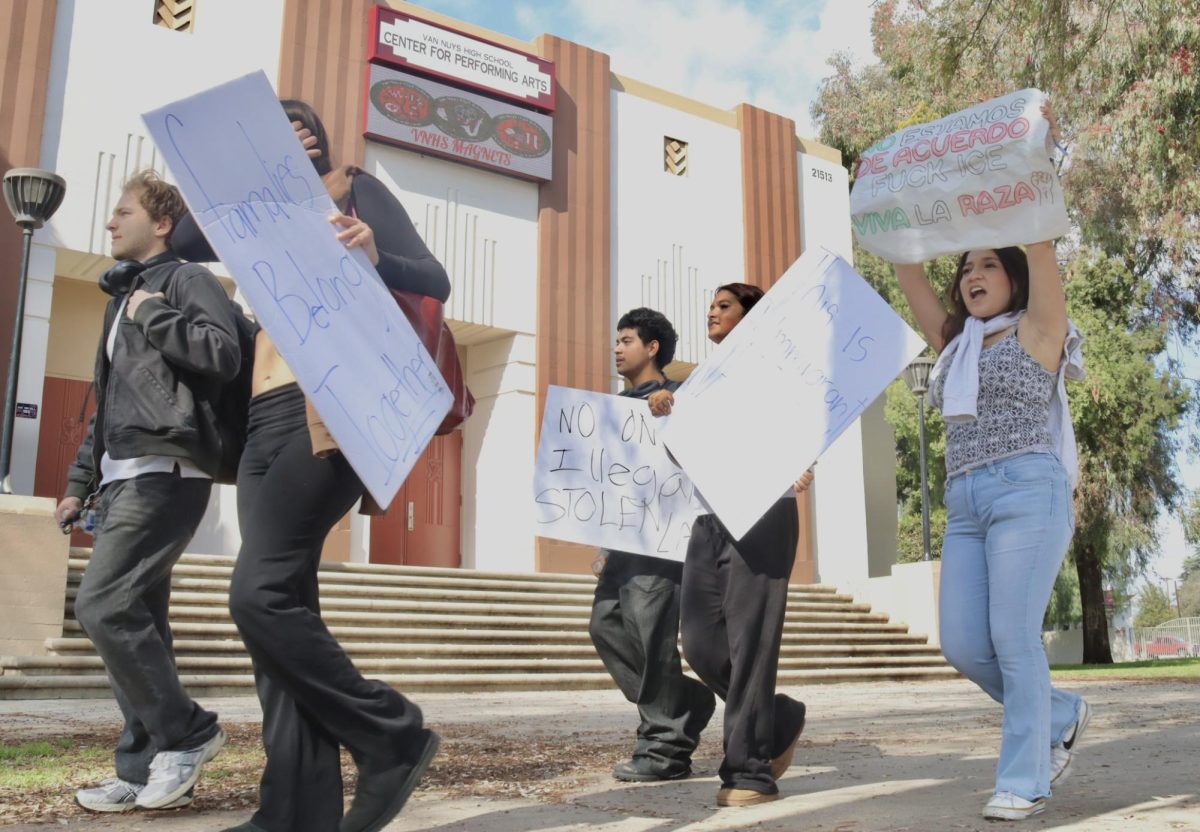Edgar Wright’s neon-soaked nostalgia trip shoots for the stars – but doesn’t stick the landing
Edgar Wright defies logic and goes out of his comfort zone with “Last Night in Soho.”
November 9, 2021
Masterful modern director Edgar Wright (responsible for such exuberant comedies the likes of which include “Hot Fuzz,” “Scott Pilgrim vs. The World,” and “Shaun of the Dead”) defies logic and goes out of his comfort zone with “Last Night in Soho.” A full-blown horror mystery with more attention driven towards suspense than witty writing. Against the staturing odds of his seemingly unchangeable style, Wright attempts to pull off a mix of a thrilling enigma and a lynchian nightmare, which doesn’t quite come to as great fruition as expected.
The film is set in the present day and stars Thomasin McKenzie as a young woman studying fashion at a prestigious school in West London’s Soho district, a mysterious place that she soon discovers holds a gateway to travel back in time to the 1960s. The young woman spends her nights on the lively streets of the 60s Soho and indulges in the risqué side of the city underbelly, where she meets another woman played by the marvelous Anya Tayler-Joy (of “Queen’s Gambit” fame.) The two’s paths collide in mysterious ways throughout the course of their collective time traveling journeys, which plummets the present day woman into a downward spiral of criminal indecencies, paranoia, and drives her to uncover a forgotten mystery left by the other woman in the past.
“Last Night in Soho” is a loving homage to the Italian-giallos of cinema’s past. With it’s poignant visual style – made possible by some stellar cinematography work from Chung-hoon Chung (“Oldboy,” “The Handmaiden,”) a killer soundtrack, and the extensively remarkable production design from Marcus Rowland (past collaborator of Wright: “Hot Fuzz,” “Baby Driver.”) The film is a neon-ridden, blood soaked nocturne – a total blast from the past. Yet it’s relentless reliance on nostalgia and evoking fear outways the enjoyable nature of the film when it comes to everything it does right. Those familiar with Wright’s signature rhythm-based pacing and delightful characters will unfortunately be disappointed, as “Last Night in Soho” is trying to do a lot of other things (and not always particularly well).
The lighting and mood all contribute to adding a sense of familiar horrorisms and an intriguing mystery, yet it’s the mystery slowly being revealed that ended up making the film boring. Once all is revealed, that’s it.
It’s ambition is prevalent and it’s uniqueness is pretty scaled by today’s standards but it’s the execution that stops this film from reaching its full potential. There’s also a good bit of underlying commentary on sexism and the male gaze, which ended up being consistently tone-deaf. I guess I was uninterested in what Wright had to say about a social issue we’re all well aware of. That’s not to say it’s an overarching element of the picture, just a tad distracting amongst that slew of other things going on.
Nothing from a horror standpoint was really scary and the screenplay is pretty lackluster. For such a perfectionist director, the directing was pretty subpar as well. It didn’t feel personal to Wright. It’s almost as if anyone could have made this movie.
It’s an overall enjoyable mystery with a lot to dissect on the surface but not bold enough to stick with you after the credits roll. If you’re interested in seeing what Wright is capable of in the thriller department or want to see a modern British-giallo, I’d recommend seeing it in a theater (preferably in Dolby Atmos.) I’d just like to see if Wright can improve on his horror skills in the future, otherwise, I think he should just stick to comedy.
(Rated R for violence, language, drug use and sexual content.)







